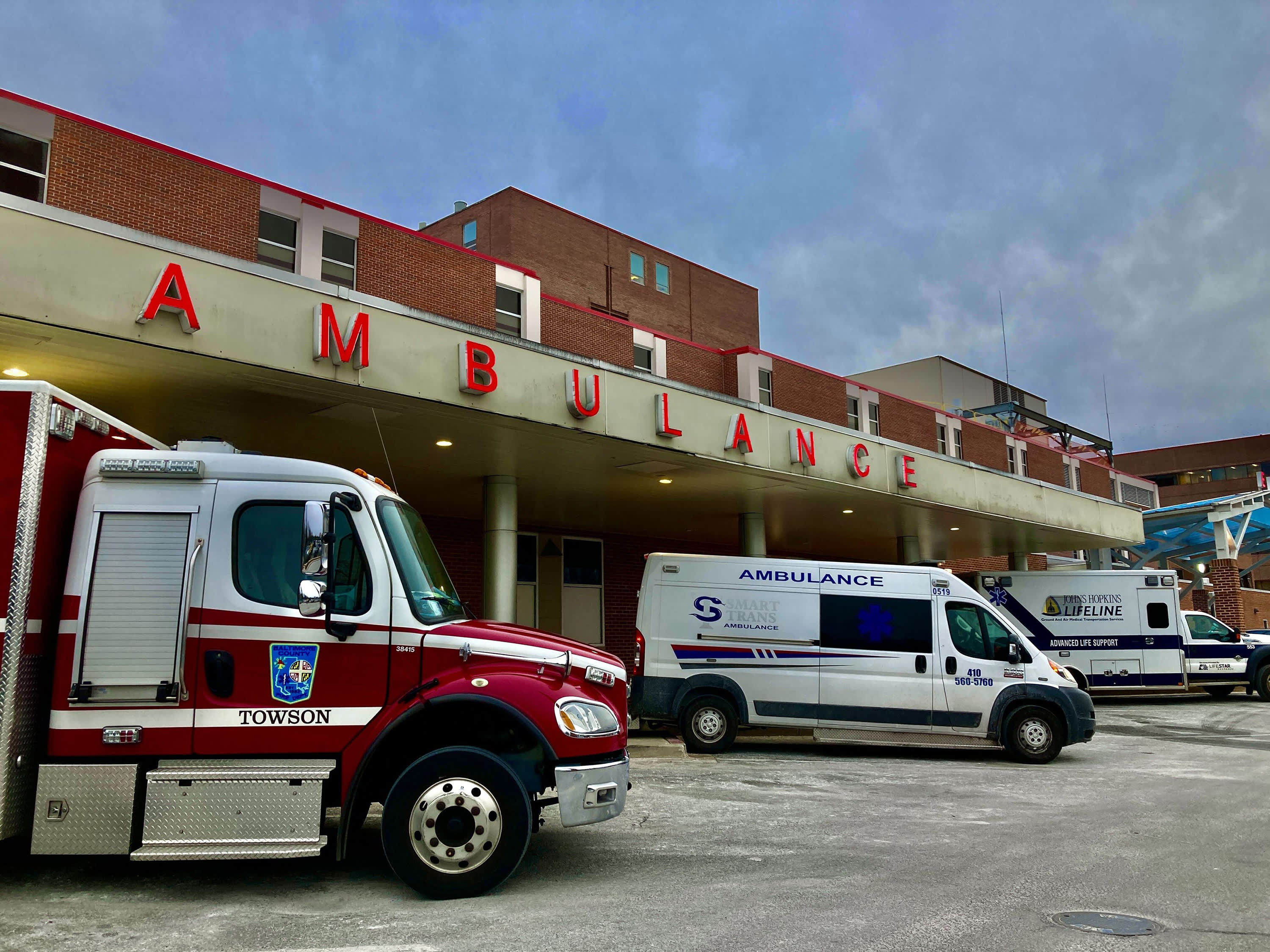GOP and Democratic governors reinstate Covid emergency orders to combat omicron surge

Ambulances outside University of Maryland St. Joseph Medical Center in Towson, Maryland, on Jan. 7, 2022.
Karl Merton | Tribune News Service | Getty Images
As Covid-19 cases surge across the nation, Republican and Democratic governors alike are issuing new or reinstated emergency health orders in an effort to slow the spread of the omicron variant and alleviate the strain on hospitals.
Officials from Maryland, Virginia, New Jersey, Kansas and California have all announced executive measures — some of which are renewals of emergency orders that are expiring or have been lifted — since the start of the month.
Instead of ordering lockdowns and business closures, which devastated the economy at the beginning of the pandemic, the fresh round of orders is designed to free up resources so state and local agencies can prepare for the onslaught of cases and potentially overwhelmed hospitals.
New Jersey Gov. Phil Murphy, a Democrat, said the state had to “commit every resource available to beating back the wave” when he renewed his public health emergency and state of emergency declarations last week.
Murphy had said the declarations “won’t even have any new impact at all” on residents’ day-to-day lives.
“This is what this does not mean: It does not mean any new universal mandates or passports,” he said in a press briefing. “It does not mean lockdowns. It does not mean any business restrictions or gathering limits.”
On Jan. 4, Republican Gov. Larry Hogan issued a 30-day state of emergency for Maryland, to assist local and state health officials in their response to the pandemic. Virginia Gov. Ralph Northam, a Democrat, issued a monthlong order on Jan. 10, to help hospitals and long-term health-care providers with the surge. Kansas Gov. Laura Kelly, a Democrat, signed a 15-day disaster declaration on Jan. 6 to help alleviate health-care staffing shortages.
Democratic Gov. Gavin Newsom, in November, extended California’s Covid emergency orders through March and is weighing more stringent vaccine and testing requirements for private companies. District of Columbia Mayor Muriel E. Bowser also reinstituted the city’s indoor mask mandate and imposed a new vaccine requirement for gyms, food and drink establishments, concert halls, movie theaters and other venues.
After months of falling case numbers, Covid infections resurged to unprecedented levels over the holidays due to the highly contagious omicron variant.
The U.S. has reported an average of more than 743,000 cases per day over the past week, according to data compiled by Johns Hopkins University. That marks more than three times the level reported during last winter’s previous record.
Data suggests that omicron, while more transmissible, isn’t making people as sick. But the overwhelming number of cases is still stressing health-care systems. Omicron has also proven to evade vaccine protection, leading to breakthrough cases that have left hospitals short-staffed as infected health workers isolate.
A record 156,000 patients are hospitalized with Covid across the U.S. as of this week, according to a seven-day average of Health and Human Services data.
In a letter to Colorado Gov. Jared Polis, the American College of Emergency Physicians urged the state to take action to help health-care workers amid a nursing shortage.
“The last thing that we want to have happen is that this causes a suffering of the quality of care that we provide,” Dr. Ramnik Dhaliwal, president of Colorado ACEP, told CNBC earlier this week.




